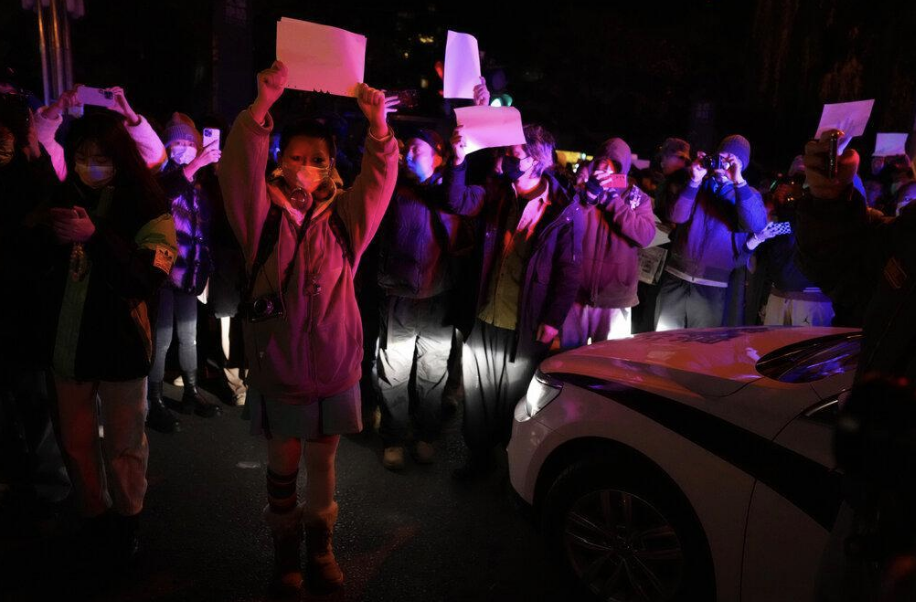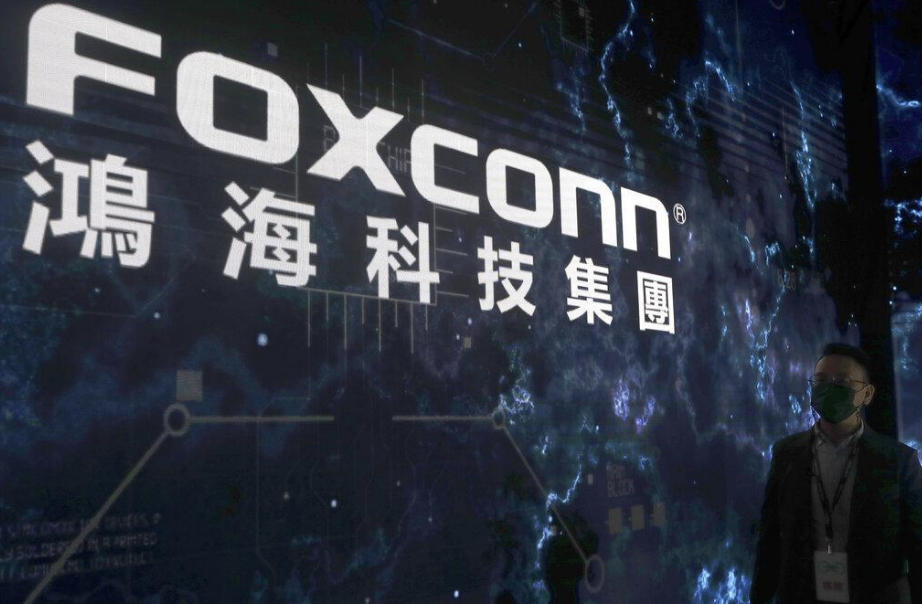White House Responds To Chinese Lockdown Protests Amidst Slowing Supply Chains
Protesters hold up blank papers and chant slogans as they march in protest of China’s strict anti-coronavirus measures in Beijing, Sunday, Nov. 27. Photo: Ng Han Guan / AP Newsroom
On Monday, Nov. 28, the White House gave a measured response to the wide-scale protests of Chinese citizens over China’s freshly implemented “zero-Covid” policies and lockdowns following a recent surge in cases.
Over the past weekend, protests and demonstrations flared up in Shanghai, mainly from frustrated Chinese factory workers, after Chinese authorities established residential lockdowns and business shutdowns in multiple major cities within the country. China previously reported record-high coronavirus case numbers — the most widespread since the start of the pandemic in 2020. Due to the policy failing to prevent the new outbreak, some protesters even called for the removal of Chinese president Xi Jinping.
In a briefing from the White House press room, officials expressed that the Biden administration gave its full support for the Chinese protesters’ right to demonstrate. “We’ve long said everyone has the right to peacefully protest, in the United States and around the world,” stated John F. Kirby, spokesman for the National Security Council. “And as we’ve said, we think it’s going to be very difficult for the People’s Republic of China to be able to contain this virus through their zero-Covid strategy.”
Kirby explained that zero-Covid policies wouldn’t be implemented within the US. Instead, the White House is focused on methods that work in regard to combating the spread of the coronavirus. According to him, the administration will continue to encourage US citizens to get their booster shots and testing and treatments will be made easily accessible.
However, when asked further whether the United States shares the protesters’ goal of ending China’s “zero-Covid” policies or Xi Jinping’s removal, the White House did not comment.
Kirby responded to the protestor’s demands by explaining that “The president is not going to speak for protesters around the world. They’re speaking for themselves.” President Biden himself has yet to issue any public statements on the situation within China.
In response to the White House’s statements, Republican lawmakers criticized the reaction to the rare civil unrest as lukewarm and weak; Texas representative Michael McCaul affirmed that the new Republican-controlled House of Representatives will have a tougher stance towards China next year. House Republicans also committed to using their subpoena powers to discern the scope of the Biden family’s alleged business deals with entities in the Chinese government.
The Foxconn logo at the Nangang Exhibition Center in Taipei, Taiwan, on Oct. 18. Videos posted to social media on Wednesday, Nov. 23. showed hundreds of people in masks facing police in white protective suits with riot shields. According to employees, workers at the factory were beaten after protests sparked. Photo: Chiang Ying-ying / AP Newsroom
However, considering the strained relationship between the US and China, some analysts state that avoiding any severe attacks against the Chinese government might be the safest approach. Chinese authorities have accused “foreign forces” such as the US of being behind state dissent in the past. Furthermore, Biden has recently met with Xi Jinping to build diplomacy and previously insisted that if cases arose, he would denounce abuses by authoritarian governments in other countries.
White House officials will continue to follow the civil unrest within China as the protests and the lockdowns present uncertainty and instability to the global economy and supply chain.
Business analysts alerted that US businesses and consumers will see a decrease in the production and distribution of technology, household appliances, and more.
For example, China’s shutdowns in its businesses slowed production for electronics manufacturer FoxConn, located in Zhengzhou, the world's biggest Apple iPhone factory. Protests erupted at the factory after a dispute over pay between workers and the company. Now that FoxConn is short-staffed, supplies of the new iPhone 14 series will be low as Apple reported a 6 million smartphone production shortage.
As the protests continue in China, the US grapples with its ripple effect on the already struggling global supply chain which is still coping with the impacts of the Russia-Ukraine war, the energy crisis, and high inflation. Despite these issues, companies within the US now have the opportunity to loosen their investments in China and diversify their supply chains.


